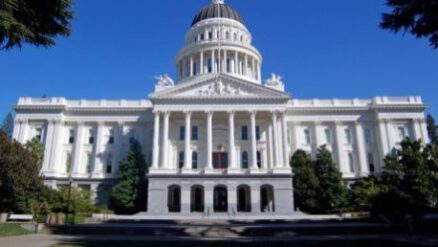After several new local cannabis taxes were adopted by voters in November 2022, some local jurisdictions implemented a cannabis regulatory system allowing retail, while others have deferred consideration of regulation or decided to not pursue it at all. That regulatory timeline may speed up based on two additional catalysts. First, the State is increasing the amount of grants available to local jurisdictions based on retail licenses issued. Second, a new state law supporting retail medical cannabis delivery takes effect January 1, 2024, which may spur local jurisdictions to consider both medical and adult cannabis regulation.
In response to the historical inaction of local jurisdictions since 2016, the California Department of Cannabis Control (DCC) established a new grant opportunity with the Local Jurisdiction Retail Access Grant. Grants were awarded in June 2023. A previous grant program was awarded in January 2022 for the jurisdictions that had the most provisional licenses.
On September 1, 2023, the DCC increased the Phase II grant funding. Specifically, the grant amount for each eligible retailer license and equity retailer license issued has been doubled. Fifteen million dollars will be available for distribution.
Further, Senate Bill 1186, which added Sections 26320-26325 to the California Business and Professions Code, will be effective January 1, 2024. The new law, entitled the “Medicinal Cannabis Patients’ Right of Access Act,” mandates that local jurisdictions cannot prohibit the retail sale by delivery within the local jurisdiction of medicinal cannabis to patients. The State further declared the new law a matter of Statewide concern which means it applies to all cities and counties.
All local jurisdictions should review their cannabis regulations to determine compliance with SB 1186 by January 1, 2024, to avoid a writ of mandate which could be enforced by an individual, a business or the Attorney General to compel compliance with the new law.
Several local jurisdictions adopted moratoriums and/or bans on all cannabis businesses in advance of the effective date of Proposition 64, January 1, 2018, which will need to be addressed by mid-November 2023 to be effective by January 1, 2024. In most local jurisdictions, it takes a minimum of 44 days for an ordinance to be effective.
For example, the City of Irvine specifically prohibits delivery of medical cannabis. Irvine Municipal Code Section 3-39-2(D) reads as follows:
Cannabis deliveries. Except as set forth in subsection (F) of this chapter, all deliveries of cannabis and medical cannabis are expressly prohibited in the City. No person shall conduct any deliveries of cannabis or medical cannabis that either originate or terminate at any location within the City.
The City Council should provide direction to the City Attorney and staff to repeal or modify the language to comply with SB 1186.
Similarly, Shasta County prohibits delivery of cannabis, both medical and adult-use under County Code Section 17.88.325(D)(2). The Board of Supervisors should, at a minimum, direct County Counsel to draft an amendment providing an exemption for medical cannabis delivery.
Los Angeles County currently prohibits all cannabis businesses under County Code Section 22.140.134(A). Staff is currently drafting cannabis regulations for Board of Supervisors consideration in the coming months. However, it is imperative that the Board of Supervisors direct staff to draft an amendment in advance of the full regulatory scheme to permit medical cannabis delivery by January 1, 2024.
In my former role as a City Attorney with many years of experience, I drafted numerous ordinances to implement the policy decisions of elected officials. The direction by the elected officials to comply with state law can be as simple as a repeal of the ban. Alternatively, the local jurisdiction may take the opportunity to establish a cannabis regulatory ordinance.
Some local jurisdictions are already being proactive. For example, the City Council of Visalia has provided direction to its City Attorney and staff to modify city ordinances to comply with SB 1186.
It is clear the State has both a financial and legislative commitment to expand access to cannabis in all local jurisdictions. Eighteen cities and counties were awarded grants worth $4.1 million dollars in June 2023. Those eighteen and other eligible jurisdictions may receive additional grant money for each retail license issued. Moreover, the new expansion of medical cannabis delivery opportunities may spur local jurisdictions to consider both medical and adult retail cannabis regulation.
Contact us by phone or email to learn more about cannabis business opportunities, California cannabis law including state, county or city cannabis licensing and cannabis regulations, cannabis regulatory compliance, and cannabis litigation.

